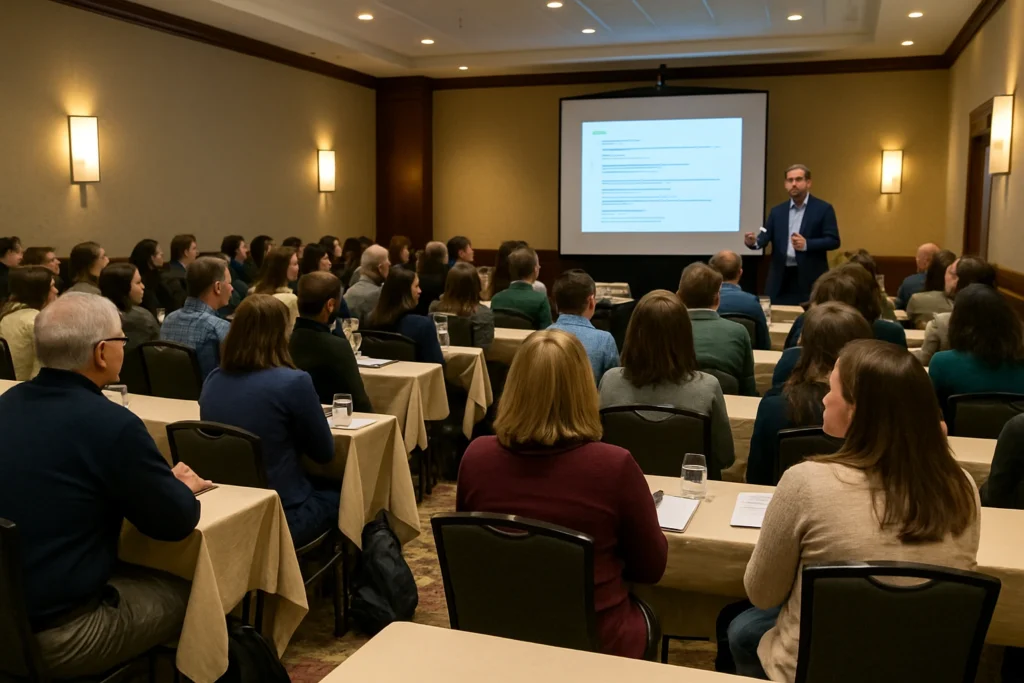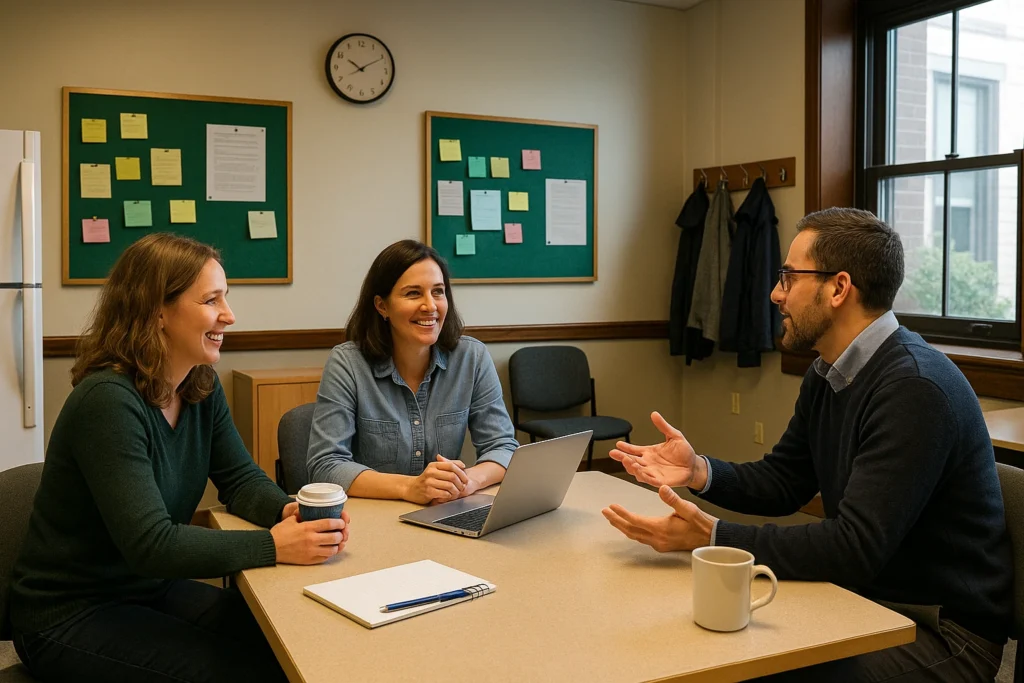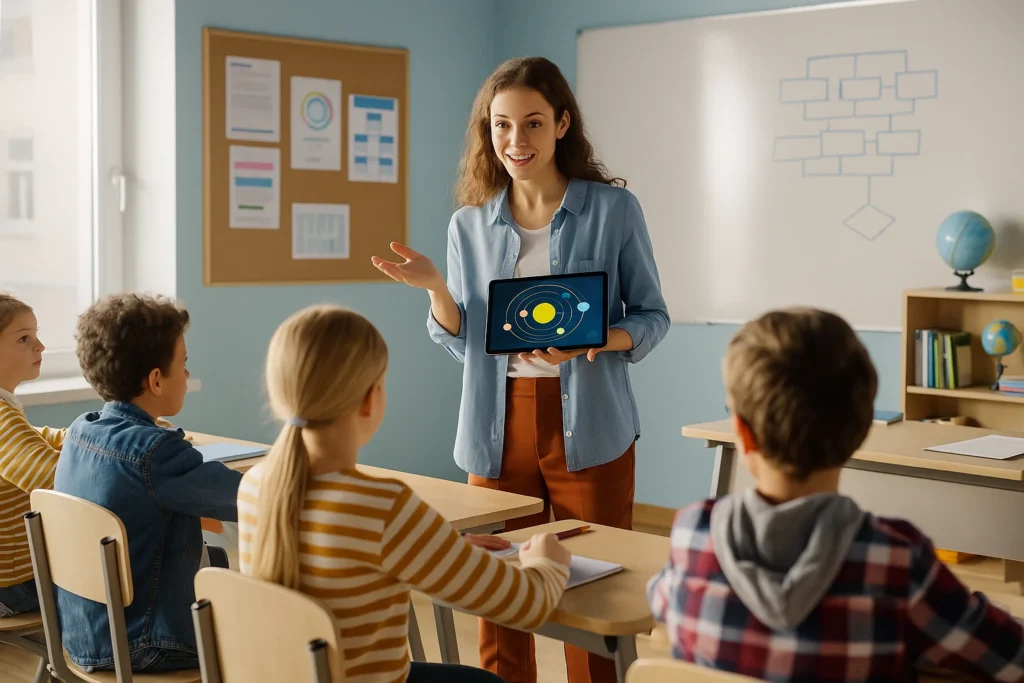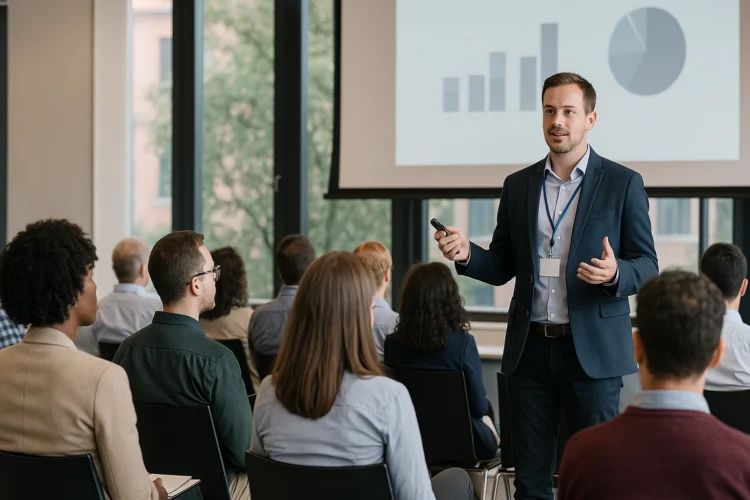Education conferences bring fresh ideas straight to you. When you attend one, you step away from your usual routine and see what other schools are doing. You meet teachers who face the same challenges and pick up methods that work in real classrooms.
Most teachers get stuck in a cycle. For example, you plan lessons, mark work, and repeat. However, conferences break that pattern. They give you space to explore innovation and connect with people who understand your work.
This article shows how conferences help you grow. You’ll discover ways to bring creative thinking into lessons and find out how teacher networking builds support.
Read on to get the full story about how education conferences can revamp your classroom.
What Makes Teacher Conferences Valuable

Teacher conferences are valuable because they give you practical strategies and real connections that improve your classroom. Are you sceptical about whether they deliver results? Fair enough, teachers hear plenty of promises about professional development that doesn’t work. But education conferences are different when done right.
Here’s what separates useful conferences from time-wasters.
Practical Innovation Strategies
You don’t need another lecture about education theory. Believe it or not, conferences connect you with schools that solve actual problems.
For example, someone shares how they reinvented their assessment system. Another explains their approach to supporting children with special needs. Alongside that, UK government research from Ofsted’s independent review of teachers’ professional development found that effective professional development helps teachers make focused changes to their work.
Bear in mind, you leave with tools you can test next week, not vague ideas that fade by Monday morning.
Building Your Professional Network
Our experience tells us that the teachers you meet in these conferences become your support system. So, we recommend you swap details with someone who teaches your year group.
These relationships develop naturally at the event. Later, when you need input on a tricky situation, you’ve got people to ask instead of searching forums for hours.
Real Results From Real Classrooms
Case studies show you the full picture. When you successfully create these relationships, you’ll see that teachers discuss setbacks and adjustments, not just wins.
Plus, you learn how schools improved student engagement or tackled staff wellbeing issues, and the honesty gives you the confidence to try similar approaches.
Now let’s look at the specific skills you’ll gain from attending these events.
Skills You Won’t Learn in the Staffroom

Your staffroom can’t teach you creative thinking techniques, staff wellbeing strategies, or the latest higher education research. Research shows that workload pressures stop many teachers from accessing the professional development they need. Meanwhile, conferences fill that gap with focused training.
Truth be told, conferences build three skills most schools never cover:
- Creative thinking workshops: Facilitators put you in real teaching scenarios with no obvious answers. Such scenarios allow you to redesign failing lessons alongside other teachers and test solutions you’d never consider alone. Also, you learn to adapt when standard methods don’t work for certain students.
- Staff wellbeing training: Forget generic wellness advice. These wellbeing sessions tackle Ofsted stress, difficult parent meetings, and workload management. What’s more, you learn boundary-setting techniques that fit school life. Other teachers share honest struggles, which helps you feel less isolated in your challenges.
- Higher education research: Universities study how children learn, but their reports use language most teachers can’t follow. Conference speakers translate that research into tools you can use Monday morning. Besides, you discover why spacing practice beats cramming or how feedback timing affects student results.
These skills prepare you for the lasting relationships you’ll build at conferences.
The Connections That Change Your Career
Those skills help, but the people you meet often prove even more valuable. Reality check: these educational conferences put you in rooms with teachers who face your exact problems. Try swapping stories during coffee breaks, and you’ll find someone else is struggling with the same behaviour issues you do.
These conversations turn into real relationships fast. You exchange contact details with a teacher who runs a similar programme at their school. You might also meet someone tackling the same innovation project you’re working on. The network you build gives you options when you hit roadblocks back in your classroom.
Think about it this way, many months later, you message someone from the conference about a tricky situation. Gratefully, they respond with advice that saves you hours of work.
There are situations where some teachers collaborate on projects across schools, sharing what works. Bear in mind that the community extends far beyond the event itself, giving you support throughout your career.
Bringing New Ideas Into Your Classroom

You’ve attended the conference and filled your notebook with ideas. Now comes the real test: will you use any of this? Many teachers return to school excited but overwhelmed. They want to implement changes but don’t know where to begin.
Let’s break down how to turn conference learning into classroom results:
Start With One Practical Change
Don’t try to revolutionise everything at once. Pick a single strategy from the conference that addresses your biggest challenge.
Maybe you learned a new approach to questioning students or a better way to organise group work. Test that one method for a few weeks and see what happens.
These small changes help you build confidence, which makes tackling bigger innovations easier later. You’ll feel less stressed when you focus on doing one thing well instead of trying to change everything at once.
Encourage Lifelong Learning in Your Team
Share what you discovered with your colleagues. If possible, run a quick session during a staff meeting about the most useful idea you picked up.
When you talk about education conferences with enthusiasm, other teachers get curious. Some might want to attend future events themselves. This gives your school the opportunity to develop a culture where professional development becomes normal. The whole team grows together instead of individuals working in isolation.
See What’s Working
Track the impact of changes you make. Notice if students respond differently to your new approach.
Go ahead and ask them for feedback on what helps their learning. Then, keep notes about which conference ideas work in your context and which need adjustment. This reflection helps you make informed decisions about what to keep using and what to drop from your practice.
The more you track, the more confident you become about trying innovation in schools. Now let’s talk about how you can take the next step in your professional growth.
Ready to Sharpen Your Teaching Skills?
Education conferences give you the innovation and connections most teachers rarely access. You learn practical strategies that improve how you teach and meet colleagues who understand your challenges.
Take into account that professional development works best when you act on what you’ve learned. The skills and ideas from conferences mean nothing if they stay in your notebook.
At ECCE 2012, we help students build the abilities they need for college and career success. Since 2012, we’ve supported learners through customised courses designed for today’s world. Our training focuses on developing skills that prepare young people for competitive careers.
If you want to strengthen your teaching practice or help students gain new abilities, contact us today to learn about our programmes.



